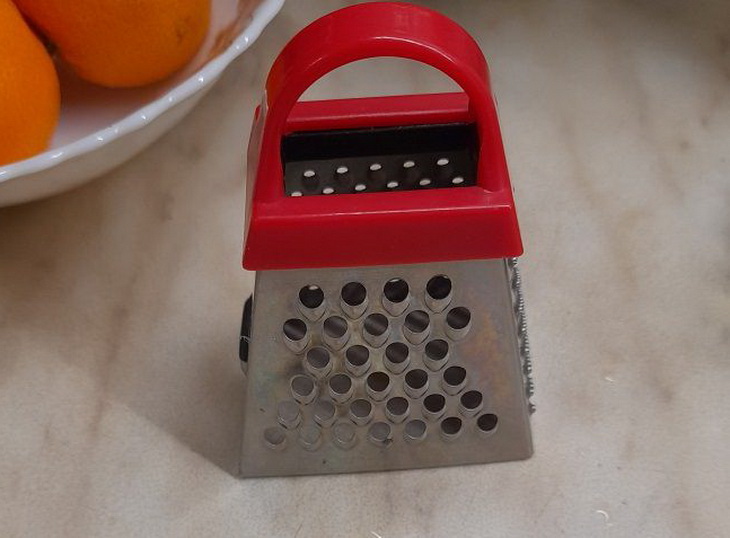The Secret Weapon to Bring Back the Shine to Your Cheese Grater: You Probably Have This Product at Home
Want to easily clean your cheese grater without any extra effort?
Lemon is your unexpected helper: this citrus not only adds flavor to dishes, but also effectively removes cheese residue thanks to the acid that dissolves it.
Imagine you're cooking dinner, you've grated some Parmesan cheese for pasta, and the grater is left with bits of cheese. It can be a pain to clean, but lemon makes it easier, leaving behind a fresh scent.
Here's how to do it step by step
- Take a fresh lemon and cut it in half.
- Apply a little liquid soap to the cut to enhance the effect if the grater is very dirty.
- Rub half a lemon over all surfaces of the grater, especially areas with cheese residue.
- Let the juice sit for 5-10 minutes to allow the acid to work.
- Rinse the grater with hot water to remove lemon juice and residue.
- Wipe the grater dry with a towel to avoid rust.
Why does it work? The acid in lemon, with a pH of about 2, denatures the proteins and fats in the cheese, making them easier to remove. Lemon also has antibacterial properties, which helps kill bacteria on the surface. For example, if you often cook with hard cheese, this method will be your savior.
Store the grater in a dry place, such as on a hook, to avoid corrosion.
For difficult stains, add salt to the lemon - it will enhance the cleaning effect.

If you don't have lemon, try vinegar: pour it onto a grater, let it sit, then rinse.
Lemon can also be used to clean cutting boards: simply cut it and rub the surface to remove odors.
Mix lemon juice with baking soda to make a paste that cleans your sink.
There are also alternative methods for cleaning the surface of the grater. Soak it in hot soapy water for 15 minutes or use a paste of baking soda and water for old stains.
Lemon is faster and leaves a pleasant smell, but baking soda is effective for heavy stains.
Common mistakes: Don't use an old lemon - it may be dry and ineffective. Don't leave lemon juice on a plastic grater for too long to avoid damaging the material.
Bottom line: Lemon is a simple, natural, and economical way to clean your grater. Try it and your kitchen will be cleaner!
